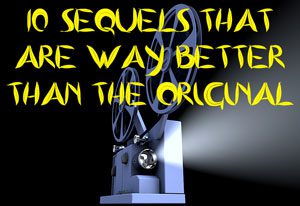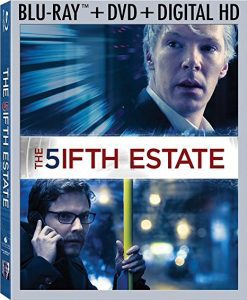“The Fifth Estate” is the liberty-themed movie I was most looking forward to this year. But while it is too loaded with important ideas to dismiss entirely, it is rather disappointing coming on the heels of last year’s very good school-choice-themed “Won’t Back Down” and 2010’s engrossing “The Social Network,” about the rise of Facebook.
Like “The Social Network,” “The Fifth Estate” chronicles the rise of a website and the way the Internet has changed the definition of journalist and the way we consume media. The Internet is unquestionably the biggest change in our lifestyles in the 21st century — from perspectives of convenience, communication, knowledge and liberty — and yet “The Fifth Estate” is a bit of a doddering slog.
I give it credit for tackling the story of WikiLeaks founder Julian Assange pretty much down the middle — naturally, he’s the protagonist of the piece, and the hero (which I personally think is accurate, although we’ll have to see what the history books say a few years down the road; like his whistleblowing brethren Bradley Manning and Edward Snowden, he’s a hero of many people yet an enemy of many states). But director Bill Condon, working from a script based on two books by WikiLeaks insiders, also acknowledges the other side of the argument about the site’s leaks of classified Afghan war cables: While it does provide the transparency that the U.S. government says it wants (but never provides), the leaked info might also put people’s lives at risk.
“The Fifth Estate” does develop some tension starting from the point — more than an hour into the picture — where we see video of what are presumably military snipers mowing down innocent civilians in a war zone, including two Reuters journalists. And it ends with possibly the most meta sequence in film history. Benedict Cumberbatch’s Assange gives an interview to the camera where he notes that there’s no evidence that the leak of the Afghan correspondences led to any individual’s physical harm. Then he’s asked about the planned movie about WikiLeaks and he scoffs, saying the two books are inaccurate. Then he brings it all weirdly full circle by noting that if people want the truth, they have to go out and find it.
The dual points of WikiLeaks, “The Fifth Estate” tells us, are 1) to give government or corporate whistleblowers a safe haven to anonymously release information the public should know about, and 2) to release that information in raw form, under the theory that any and all editing is bias. I can’t argue with the first point. Certainly, as a journalist, I think sourcing is important, but if the source’s life is endangered by the leak, sometimes anonymity is a good and necessary thing. And to Assange’s credit, he and his team do their due diligence in verifying the documents are legitimate.
The second point is where the more serious moral conundrum comes up, and intriguingly, it’s the Fourth Estate (traditional media) that offers Assange a way around it. The UK’s Guardian, Germany’s Der Spiegel and the New York Times want to publish the Afghan cables in redacted form (names will be removed). They make a compelling case that this should be done for the safety of those named, but Assange publishes the material in full. Without a doubt, WikiLeaks has done some good (the film opens with the takedown of some crooked European bankers). But is it journalistically noble to have a “no editing” policy, or is it just an ingenious way to dodge responsibility?

Condon presents the “rise of a major website” angle in a stylized fashion, quite different from how “The Social Network” really dug into the moving and shaking of how Facebook grew. We see a room full of Assanges sitting at desks, or a room full of Daniel Bergs. Later we’ll see other assistants, but for a long time it was really just Assange and Berg posing as the “hundreds of volunteers,” a lie that Assange felt was necessary to both jump-start and protect the WikiLeaks brand.
I have mixed feelings about the weight “The Fifth Estate” gives to Assange’s character arc. On one hand, I don’t really care that much if he created WikiLeaks partly out of his own ego, and I could’ve done without the script hammering home that point. Everyone has an ego, but not everyone puts their freedom and well-being on the line by launching a web site aimed at informing the citizens of the world and therefore ticking off the powers that be. To this day, it has cost him his freedom of movement around the globe; he has found asylum with the Ecuadorian embassy in Britain (which, I suppose, is still better than the fates of Manning and Snowden).
On the other hand, the first two acts of “The Fifth Estate” are rather dry and devoid of serious conflict. It’s mainly about Berg joining WikiLeaks and Assange giving increasingly well-attended speeches. If the script had delved more into Assange’s formative years — what made him not only interested in bucking the system, but also what made him brave enough to do so? — I think it could’ve been a richer movie.
And there is more information about him out there: Interestingly, there’s an “unauthorized autobiography” about Assange — the author tried to back out of the book contract, but couldn’t. Considering the film’s interest in the idea that Assange — whose very name sounds like that of a “Batman” hero or villain — might be an attention whore, it’s weird that “The Fifth Estate” keeps his origin story rather vague.

